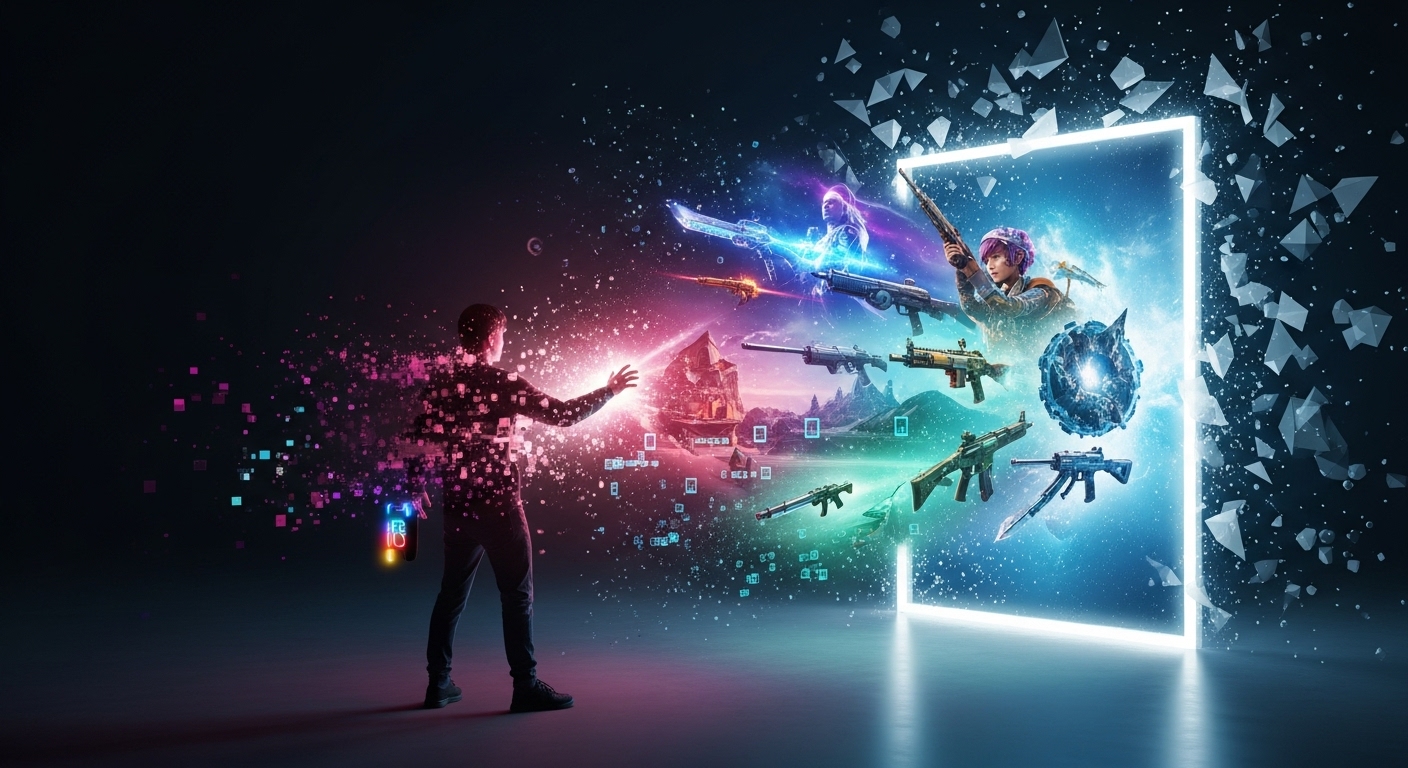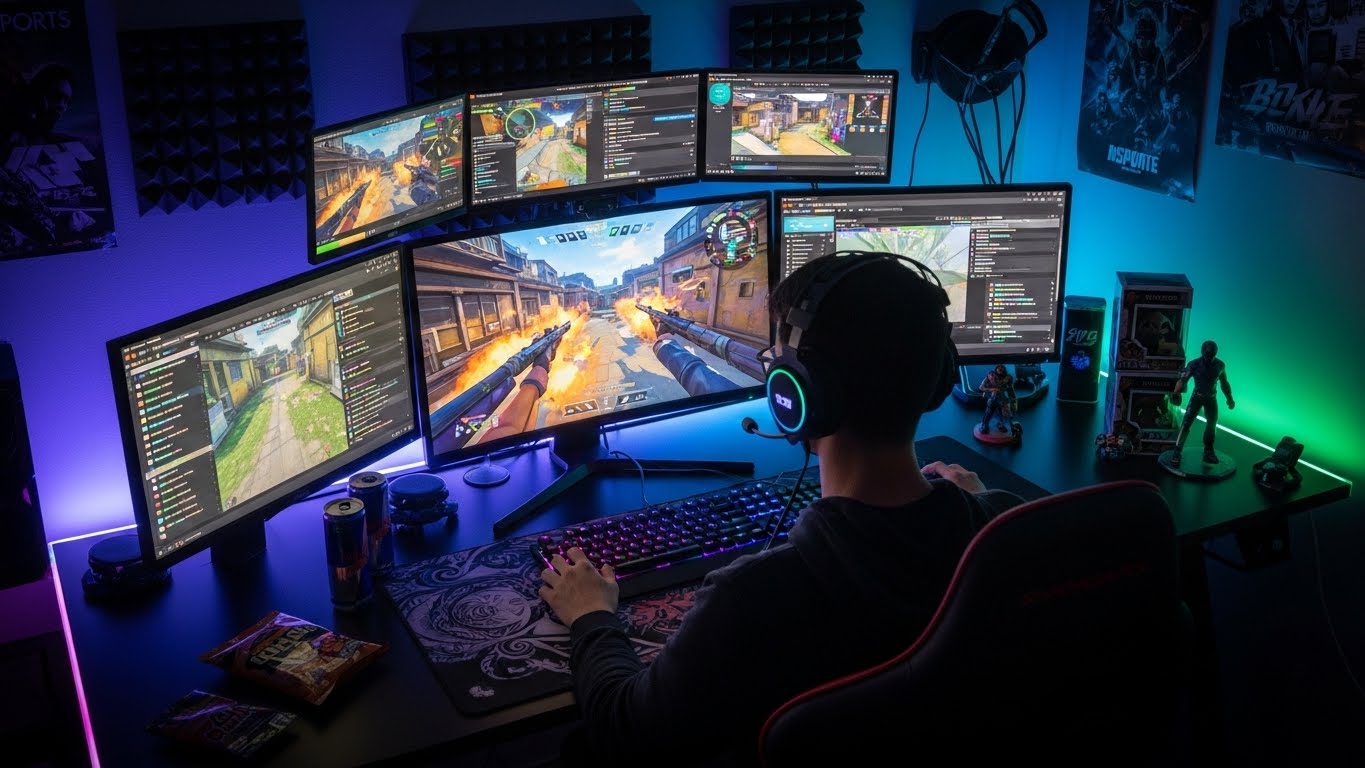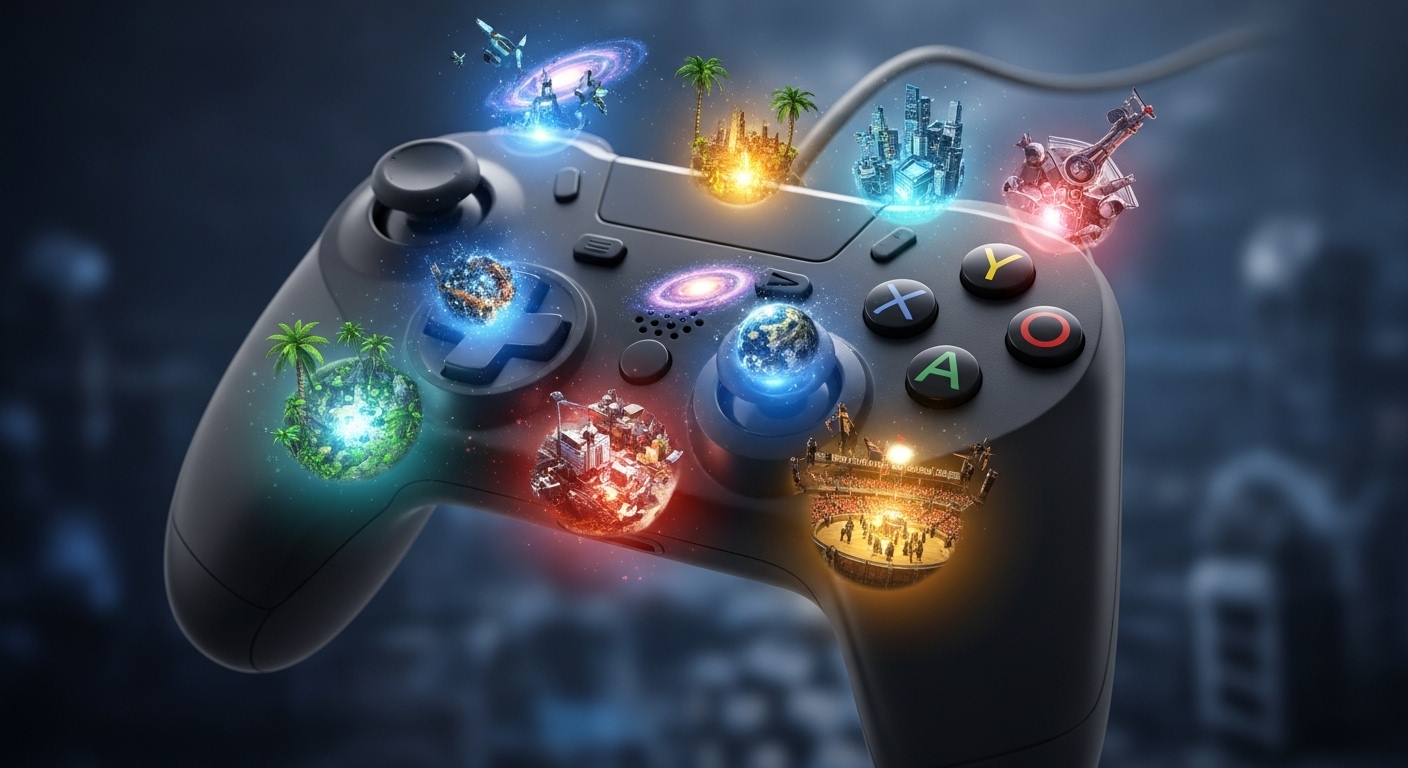Introduction: Gaming as a Cultural and Technological Revolution
Gaming has come a long way since its inception, evolving from simple pixelated screens and limited gameplay to immersive, expansive universes that captivate millions worldwide. What was once a hobby relegated to a niche group of enthusiasts has transformed into a powerful cultural and social force. Today, video games are not only a form of entertainment but a medium for storytelling, competition, and even education. The rapid growth of the gaming industry, fueled by technological advancements and a global fanbase, has made it a central pillar of modern pop culture. This blog delves into how gaming is shaping the future and why it’s becoming such a dominant force in today’s world.
The Rise of Gaming: From Arcades to Home Consoles
The early days of gaming were defined by arcades and rudimentary consoles. Games like Pong and Space Invaders were iconic, sparking the interest of players across the globe. However, it was the advent of home gaming consoles, such as the Atari 2600 and Nintendo Entertainment System (NES), that propelled gaming into the mainstream. With these devices, people could now experience their favorite games from the comfort of their own homes.
The 80s and 90s marked a golden age for gaming, with the introduction of iconic franchises such as Super Mario, The Legend of Zelda, and Sonic the Hedgehog. These games established the foundation for what we now know as “modern” gaming, blending innovation in design, storytelling, and gameplay. Home consoles began to dominate, and gaming culture started taking shape, reaching broader demographics than ever before.
The Emergence of Online Gaming: Connecting Players Worldwide
As internet access became more widespread in the 2000s, gaming underwent a significant shift. The introduction of online multiplayer games fundamentally changed how players interacted with games and each other. World of Warcraft, Halo, and Call of Duty became cultural touchstones, offering the ability to play against or team up with people from all over the world. The concept of playing alone in a room was replaced by the excitement of interacting in virtual spaces with people of different backgrounds and cultures.
Online gaming also gave rise to new social experiences. Gaming communities began to form around shared interests, creating spaces for discussion, collaboration, and competition. With platforms like Twitch, players could live-stream their gameplay, and audiences began to form around individual streamers and their personalities. This era also saw the rise of competitive gaming or esports, turning video games into a professional industry that attracts millions of viewers and lucrative sponsorships.
Mobile Gaming: A Revolution in Accessibility
The rise of smartphones has brought about a new wave of gaming. Titles like Angry Birds, Candy Crush, and Pokémon Go broke down the barriers of traditional gaming, making it accessible to anyone with a mobile device. Unlike the expensive, hardware-intensive console games, mobile games became a low-cost, highly accessible entry point into the gaming world.
Mobile gaming has evolved significantly in terms of quality and complexity. Games like PUBG Mobile and Fortnite Mobile offer gameplay comparable to that found on consoles, and augmented reality (AR) games like Pokémon Go have added a layer of physical interaction to digital gaming. Today, mobile gaming accounts for a significant portion of the gaming industry, and as smartphone technology continues to advance, the possibilities for mobile games are only growing.
The Impact of Storytelling in Gaming
One of the most significant aspects of modern gaming is the emphasis on storytelling. Games are no longer just about achieving high scores or completing levels; they are now an immersive narrative experience. Games like The Last of Us, Red Dead Redemption 2, and The Witcher 3 have blurred the lines between video games and cinematic experiences, offering complex characters, intricate plots, and emotional storytelling that rival any Hollywood production.
This focus on narrative has transformed video games into a form of art. The ability to control characters and affect the outcome of the story gives players a sense of agency and immersion that has made gaming an incredibly powerful storytelling medium. As gaming technology continues to improve, the depth of narrative experiences will only increase, opening the door for even more sophisticated and emotionally charged stories to unfold.
Esports: The Professionalization of Gaming
Esports, or electronic sports, has taken the gaming world by storm, growing into a multi-billion-dollar industry. Professional gaming competitions, with tournaments for games like League of Legends, Dota 2, and Counter-Strike, now draw large crowds and millions of online viewers. Esports athletes are treated like traditional sports stars, with sponsorship deals, professional coaching, and large salaries.
Esports has created a unique intersection between gaming and entertainment, with companies like ESPN broadcasting major tournaments, and teams forming sponsorships with multinational corporations. The growing legitimacy of esports has also led to the formation of educational programs and scholarships for aspiring pro gamers, similar to traditional athletic scholarships.
The rise of esports has opened up new career paths for gamers, and it’s shaping the future of the gaming industry in ways that traditional sports industries have long since done. Esports also has a growing cultural presence, with large-scale tournaments and live events creating a community around competitive gaming.
Virtual Reality (VR) and Augmented Reality (AR): The Next Frontier
Looking toward the future, Virtual Reality (VR) and Augmented Reality (AR) are poised to be the next big leap in gaming technology. VR offers players a fully immersive experience, allowing them to step directly into digital worlds and interact with them in a way that was previously impossible. Devices like the Oculus Rift and PlayStation VR have already brought the VR gaming experience to players, and as technology continues to improve, VR is expected to become more mainstream.
AR, on the other hand, enhances the real world by overlaying digital content. Games like Pokémon Go have demonstrated the potential for AR, combining real-world exploration with in-game mechanics. As AR technology advances, we can expect games to become more interactive and seamlessly integrated into everyday life.
Both VR and AR hold immense potential to further transform how we experience and interact with games, offering new ways to tell stories, play games, and engage with the world around us.
The Social Aspect of Gaming: Building Communities and Friendships
Gaming today is not just about playing; it’s about connecting. Online multiplayer games allow players to meet people from across the globe, form friendships, and engage in collaborative or competitive experiences. Voice chat, streaming platforms, and social media have created a rich ecosystem where gamers can bond over shared experiences, discuss strategies, and build communities around common interests.
The rise of streaming services like Twitch has further reinforced the social aspect of gaming, turning gameplay into an interactive social event. Viewers can chat with streamers, join in on games, and form online communities, creating a unique digital culture around gaming.
The Future of Gaming: Endless Possibilities
The future of gaming is incredibly exciting, with technological innovations continuing to push the boundaries of what’s possible. From more immersive VR and AR experiences to the further professionalization of esports, gaming is evolving at a rapid pace. New platforms, genres, and ways of interacting with games will continue to emerge, offering endless opportunities for gamers and developers alike.
As gaming becomes more integrated into everyday life, it will undoubtedly continue to influence other forms of entertainment, education, and social interaction. Whether it’s through the power of storytelling, the thrill of competition, or the joy of exploration, gaming will remain a central part of our digital lives for the foreseeable future.
Conclusion: Gaming as a Global Phenomenon
From its humble beginnings to its current status as a global entertainment powerhouse, gaming has become an essential part of modern culture. It’s no longer just a pastime; it’s a way for people to connect, compete, and explore new worlds. With advancements in technology, the expansion of esports, and the ever-growing gaming community, the industry shows no signs of slowing down. As gaming continues to evolve, it will undoubtedly keep its place as one of the most exciting, dynamic, and influential forms of entertainment in the world.


